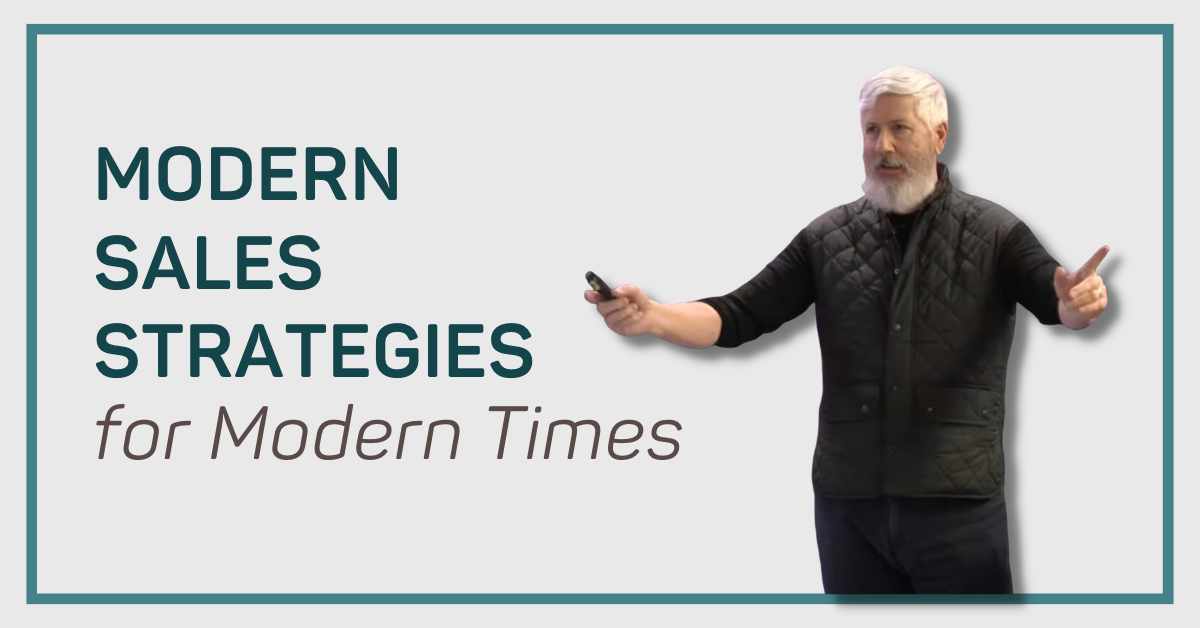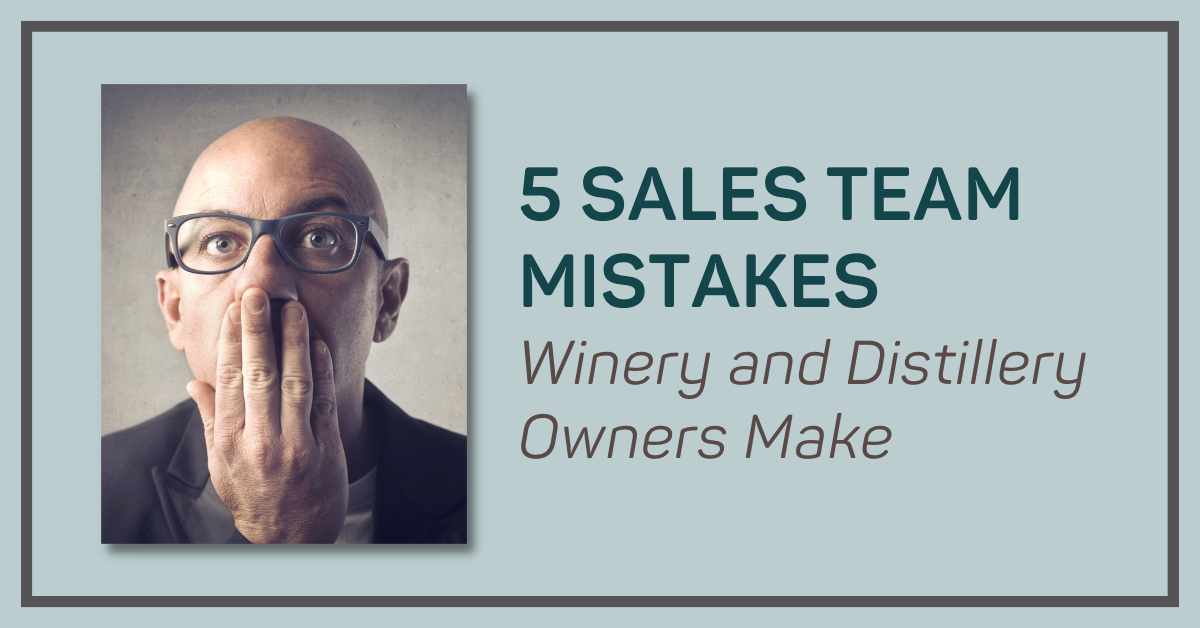The Pointless Insanity of a Wine Market Blitz 🍷
While I’m sure occasional successful sales blitzes do exist, most of them are a giant waste of time and money. I know I’m going to get some vitriolic...
5 min read
 Ben Salisbury
:
10/17/24 4:38 PM
Ben Salisbury
:
10/17/24 4:38 PM
In today’s rapidly changing wine and spirits industry, the traditional model of managing distributors is quickly becoming obsolete. Join us as we explore why many brand owners need to rethink their approach and embrace new strategies to grow their business amidst a surplus of brands and a shortage of distributors.
The days of managing wine distributors are over, coming up next.
Okay, we need to have a serious talk about something very serious. Many of you out there who have wine brands, spirit brands, etcetera – you're still trying to manage your distributors. And I'm here to tell you that
the days of managing distributors are over, and here's why.
Now, this is a fairly new phenomenon in just the last six or seven years. But the fact is, there's just way too many brands and way too few distributors. And that ratio is getting worse and worse. It doesn't matter if it's a large distributor or a small distributor. The ratio of salespeople to brands is completely overwhelming. It's created a situation that is just no longer workable. Now, because this is a new phenomenon, many people are stuck in the past. They think that what used to work still works, and it doesn't. So if you're still in denial over this, I want to offer you two exhibits, if you will, to help convince you.
This first exhibit is a chart from IRI called the humbler, and it visually represents just how many brands there are, and the relative size of those brands. So just imagine your brand being down in the bottom right hand corner. Now, if you have a really, really large brand and you feel like you still have a lot of sway with the distributor, you're not immune from this either, because the fact that distributors are overwhelmed affects both large suppliers and small suppliers.
Now here's another bit of evidence. If you go to winejobs.com right now and you start reading job descriptions, you're going to see bullet points like these on the screen that have to do with managing the distributor, holding the distributor accountable, setting goals for the distributor. These things are terribly out of touch with reality. That's how I can tell if somebody's in denial about this phenomenon, because they're hiring people to manage distributors. When it comes to goal setting, holding meetings, doing "work withs" – these things used to work. You know what also used to work, if you had really deep relationships with a distributor at all levels of the organization, that usually was very, very powerful because you could know who to call, you could have access to them, they'd return your calls and your emails. But that's just not realistic anymore. The fact that you have great relationships, it just doesn't mean as much as it used to.
So I'm sure you're wondering – well, what do I do about this? If we agree with you, Ben, what are your suggestions for improvement?" Well, I have five things I want to share with you today.
One is you're going to have to take more control of your own destiny. Because distributors can't do what they used to do, that means somebody else is going to have to do it and that falls to you. The reality is the burden of building sales and distribution has shifted from the distributor tier back to the supplier tier. So you need to adopt a new mantra that "if it's going to be, it's up to me."
Now the second thing is the logistics, like delivering product and fulfilling orders, maintaining enough inventory. You need to start looking at your distributor as a logistics partner and not much beyond that. Now if you can get the distributor to sell for you, great – but beware of paying them to do it (paying them extra to do it). I've got another video. I'll put a link in the description about why this is not a good idea. But the idea that you treat your distributor as a logistics partner is the new normal.
The third thing is you've got to learn how to generate your own demand. Now these are very exciting times that we live in. If you don't know how to generate your own demand, please check out the link in the description for a few resources that will help you do this, principal among them is digital lead generation. Did you know that using lead magnets and meta lead ads you could have a steady stream of trade buyer leads coming into your CRM system on a daily basis? Trust me, this works and I have many, many clients who've done it. I'll put a case study in the link in the description below. I really suggest you go check that out.
Now, the fourth thing is you're going to have to redesign your sales team structure. And here's the upshot, you need far fewer people managing distributors and far more feet on the street. So whatever your payroll budget is, you need to take a hard look at it. If you're paying people to travel around the country and manage distributors, this is a real problem. So you've got to restructure, reallocate your headcount. You only need a few people managing distributors, and a lot of that is just the logistics part: inventory, shipments, pricing, bill backs, programs, these types of things. But you need a lot more people out selling.
And the fifth thing is you've got to leverage the 80/20 rule. It's totally true that 80% of the business in any particular market is driven by 20% of the customers. You need to know which customers those are. You need to know which accounts, both on premise and off premise, are driving most of the volume in each market. It's up to you to learn that. It's not really hard to do anymore, there's so much data available.
So the idea that you would seek a wide and thin distribution strategy versus a narrow and deep strategy is going to really matter moving forward. It used to be the idea was to gain lots and lots of distribution, have a nice broad base of distribution. That would be how you build a brand. But because there's too many brands chasing too few wine by the glass spots, too few shelf placements, you're going to need to choose your partners, your account partners, more carefully. This requires research and it requires discipline.
But those are the five things that you can do to begin to combat this situation that we're in where there's way too many brands and way too few distributors.
Now, if you have questions, I would love to hear your questions in the comments below. If you have a comment below, it'd be great for you to put that in there too. Now, I have lots and lots of resources that address this particular dilemma, that the days of managing wine distributors are over. I want to invite you to avail yourself of these resources. Here in YouTube you can – in the notes section below, you can find all kinds of links to resources that will help you do all the things I've talked about in the video.
And as always, I love to hear from people. Feel free to send me an email. I'll put my email address right here on the screen. I want to hear from you. You want to challenge me on this topic? Fine. I'd be happy to get into a discussion with you about it.
What most people are going to need though, is they're going to need some practical training and advice for their sales team. And if you're an owner, if you're a business owner, if you own a winery or distillery, or a meadery, or a cidery, or a ready to drink brand or a cannabis beverage, you're going to need to take a hard look at how you're deploying your people and what your expectations are for distributors. Because I promise if you rely too much on the distributors to sell for you, you're going to fall far short of your goals and you're just going to be miserable.
So I hope this video is helpful. Let me know if you have questions and as always, I'd love to hear your comments in the comment section below. If you got value from this video, please hit the like button. I also suggest that you share it with others in your organization that need to get this information so please open your mind to the fact that things have changed. And because it's changed, you're going to have to have a new strategy. I hope this has been helpful. Thank you very much.

While I’m sure occasional successful sales blitzes do exist, most of them are a giant waste of time and money. I know I’m going to get some vitriolic...

This is a recording of Ben's speech at the 2023 Craft Beverage Expo.

Finding, selecting, hiring, training and then leading a great sales team is a daunting task! It requires very specific knowledge and real-world...